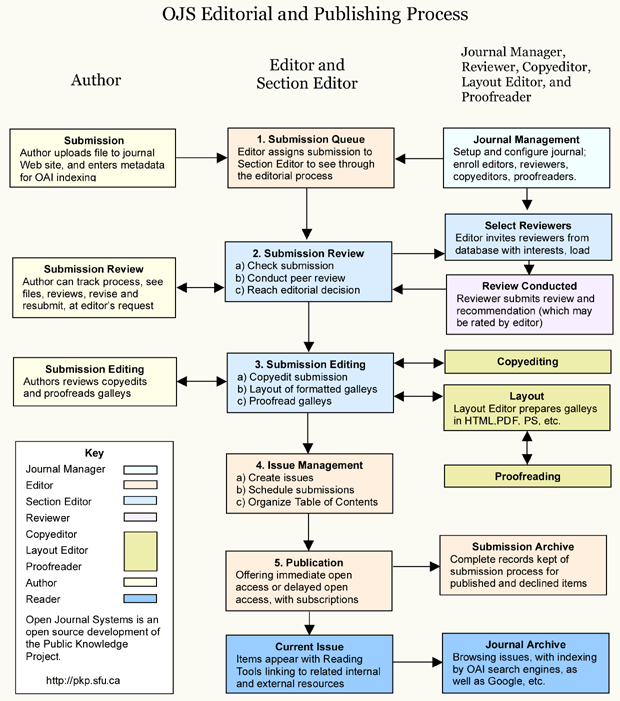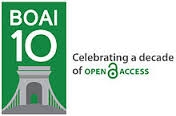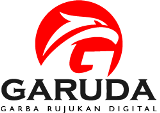- Focus and Scope
- Section Policies
- Peer Review Process
- Publication Frequency
- Open Access Policy
- Archiving
- About the journal
- Author fees
- Plagiarism Policy
- Copyright Notice
Focus and Scope
JIL: Journal of Indonesian Law is an academic journal published twice a year (June and December) by the Faculty of Sharia State Institute of Islamic Studies (IAIN) Salatiga.
The journal emphasizes specifications in the discourse of Indonesian Law. This journal openly accepts the contributions of experts from related disciplines. All published articles do not necessarily represent the views of journals, or other institutions that have links to journal publications.
The journal focuses onIndonesian Law, such as Indonesian Islamic law, Indonesian criminal law, Indonesian Private Law, Indonesian political law, Indonesian economic law and all abaout law that living in indonesia with various approaches of normative, philosophy, history, sociology, anthropology, theology, psychology, economics and is intended to communicate the original researches and current issues on the subject. This journal warmly welcomes to any contributions from scholars of the related disciplines.
Section Policies
Articles
Peer Review Process
Peer Review Process
Journal of Indoensian Law (JIL) maintains the standards of peer review while increasing the efficiency of the process. All research articles published in Journal of Indoensian Law (JIL) undergo full peer review, key characteristics of which are listed below:
- All research articles are reviewed by at least two suitably qualified experts.
- All publication decisions are made by the journals’ Editors-in-Chief on the basis of the reviews provided
- Members of the international Editorial Boards lend insight, advice, and guidance to the Editors-in-Chief generally and to assist decision making on specific submissions
- Managing Editors and Editorial Assistants provide the administrative support that allows Journal of Indoensian Law (JIL) to maintain the integrity of double-blind peer review while delivering rapid turnaround and maximum efficiency to authors, reviewers, and editors alike.
- Journal of Indoensian Law (JIL) additionally benefits through the manuscript referral process from the high-quality peer review conducted by established journals.
- the period of peer review, editing, copyediting, and proofreading process usually takes 4-7 months.
Peer review of referred papers:
Editors of Journal of Indoensian Law (JIL) will decide promptly whether to accept, reject, or request revisions of referred papers based on the reviews and editorial insight of the supporting journals. In addition, Editors will have the option of seeking additional reviews when needed. The authors will be advised when Editors decide further review is needed.
Peer review of novel submissions:
Articles submitted directly to Journal of Indoensian Law (JIL) will be fully peer-reviewed by at least two appropriately qualified experts in the field selected by the Editor-in-Chief. The Editor-in-Chief or a designated member of the Editorial Board will then decide whether to accept, reject or request revisions based on the reviews and comments received.
Editors will decide whether each submission reports well-conducted research with conclusions supported by the data presented in the paper. Assessments of priority will not be a factor in decision-making, but all papers must make an incremental or novel addition to the literature.
Publication Frequency
This journal uses Open Journal Systems 2.4.8.1, which is open source journal management and publishing software developed, supported, and freely distributed by the Public Knowledge Project under the GNU General Public License.

Open Access Policy
This journal provides immediate open access to its content on the principle that making research freely available to the public supports a greater global exchange of knowledge.
This journal is open access journal which means that all content is freely available without charge to users or / institution. Users are allowed to read, download, copy, distribute, print, search, or link to full text articles in this journal without asking prior permission from the publisher or author. This is in accordance with Budapest Open Access Initiative


Budapest Open Access Initiative
For various reasons, this kind of free and unrestricted online availability, which we will call open access, has so far been limited to small portions of the journal literature. But even in these limited collections, many different initiatives have shown that open access is economically feasible, that it gives readers extraordinary power to find and make use of relevant literature, and that it gives authors and their works vast and measurable new visibility, readership, and impact. To secure these benefits for all, we call on all interested institutions and individuals to help open up access to the rest of this literature and remove the barriers, especially the price barriers, that stand in the way. The more who join the effort to advance this cause, the sooner we will all enjoy the benefits of open access.
The literature that should be freely accessible online is that which scholars give to the world without expectation of payment. Primarily, this category encompasses their peer-reviewed journal articles, but it also includes any unreviewed preprints that they might wish to put online for comment or to alert colleagues to important research findings. There are many degrees and kinds of wider and easier access to this literature. By "open access" to this literature, we mean its free availability on the public internet, permitting any users to read, download, copy, distribute, print, search, or link to the full texts of these articles, crawl them for indexing, pass them as data to software, or use them for any other lawful purpose, without financial, legal, or technical barriers other than those inseparable from gaining access to the internet itself. The only constraint on reproduction and distribution, and the only role for copyright in this domain, should be to give authors control over the integrity of their work and the right to be properly acknowledged and cited.
While the peer-reviewed journal literature should be accessible online without cost to readers, it is not costless to produce. However, experiments show that the overall costs of providing open access to this literature are far lower than the costs of traditional forms of dissemination. With such an opportunity to save money and expand the scope of dissemination at the same time, there is today a strong incentive for professional associations, universities, libraries, foundations, and others to embrace open access as a means of advancing their missions. Achieving open access will require new cost recovery models and financing mechanisms, but the significantly lower overall cost of dissemination is a reason to be confident that the goal is attainable and not merely preferable or utopian.
To achieve open access to scholarly journal literature, we recommend two complementary strategies.
I. Self-Archiving: First, scholars need the tools and assistance to deposit their refereed journal articles in open electronic archives, a practice commonly called, self-archiving. When these archives conform to standards created by the Open Archives Initiative, then search engines and other tools can treat the separate archives as one. Users then need not know which archives exist or where they are located in order to find and make use of their contents.
II. Open-access Journals: Second, scholars need the means to launch a new generation of journals committed to open access, and to help existing journals that elect to make the transition to open access. Because journal articles should be disseminated as widely as possible, these new journals will no longer invoke copyright to restrict access to and use of the material they publish. Instead they will use copyright and other tools to ensure permanent open access to all the articles they publish. Because price is a barrier to access, these new journals will not charge subscription or access fees, and will turn to other methods for covering their expenses. There are many alternative sources of funds for this purpose, including the foundations and governments that fund research, the universities and laboratories that employ researchers, endowments set up by discipline or institution, friends of the cause of open access, profits from the sale of add-ons to the basic texts, funds freed up by the demise or cancellation of journals charging traditional subscription or access fees, or even contributions from the researchers themselves. There is no need to favor one of these solutions over the others for all disciplines or nations, and no need to stop looking for other, creative alternatives.
Open access to peer-reviewed journal literature is the goal. Self-archiving (I.) and a new generation of open-access journals (II.) are the ways to attain this goal. They are not only direct and effective means to this end, they are within the reach of scholars themselves, immediately, and need not wait on changes brought about by markets or legislation. While we endorse the two strategies just outlined, we also encourage experimentation with further ways to make the transition from the present methods of dissemination to open access. Flexibility, experimentation, and adaptation to local circumstances are the best ways to assure that progress in diverse settings will be rapid, secure, and long-lived.
The Open Society Institute, the foundation network founded by philanthropist George Soros, is committed to providing initial help and funding to realize this goal. It will use its resources and influence to extend and promote institutional self-archiving, to launch new open-access journals, and to help an open-access journal system become economically self-sustaining. While the Open Society Institute's commitment and resources are substantial, this initiative is very much in need of other organizations to lend their effort and resources.
We invite governments, universities, libraries, journal editors, publishers, foundations, learned societies, professional associations, and individual scholars who share our vision to join us in the task of removing the barriers to open access and building a future in which research and education in every part of the world are that much more free to flourish.
Archiving
This journal utilizes the LOCKSS system to create a distributed archiving system among participating libraries and permits those libraries to create permanent archives of the journal for purposes of preservation and restoration. More...
About the journal
JIL: Journal of Indonesian Law is an academic journal published twice a year (June and December) by the Faculty of Sharia State Institute of Islamic Studies (IAIN) Salatiga.
The journal emphasizes specifications in the discourse of Indonesian Law. This journal openly accepts the contributions of experts from related disciplines. All published articles do not necessarily represent the views of journals, or other institutions that have links to journal publications.
The journal focuses onIndonesian Law, such as Indonesian Islamic law, Indonesian criminal law, Indonesian Private Law, Indonesian political law, Indonesian economic law and all abaout law that living in indonesia with various approaches of normative, philosophy, history, sociology, anthropology, theology, psychology, economics and is intended to communicate the original researches and current issues on the subject. This journal warmly welcomes to any contributions from scholars of the related disciplines.
Author fees
JIL: Journal of Indonesian law is an open access journal which means that all content is freely available without charge to users or institutions.
Plagiarism Policy
Journal of Indonesian Law (JIL) Editorial board recognizes that plagiarism is not acceptable and therefore establishes the following policy stating specific actions (penalties) upon identification of plagiarism/similarities in articles submitted for publication in Journal of Indonesian Law (JIL). Journal of Indonesian Law (JIL) will use Turnitin's originality checking software as the tool in detecting similarities of texts in article manuscripts and the final version articles ready for publication. A maximum of 20 % of similarities is allowed for the submitted papers. Should we find more than 20 % of the similarity index, the article will be returned to the author for correction and re-submission.
Definition:
Plagiarism involves the "use or close imitation of the language and thoughts of another author and the representation of them as one's own original work."
Policy:
Papers must be original, unpublished, and not pending publication elsewhere. Any material taken verbatim from another source needs to be clearly identified as different from the present original text by (1) indentation, (2) use of quotation marks, and (3) identification of the source.
Any text of an amount exceeding fair use standards (herein defined as more than two or three sentences or the equivalent thereof) or any graphic material reproduced from another source requires permission from the copyright holder and, if feasible, the original author(s) and also requires identification of the source; e.g., previous publication.
When plagiarism is identified, the Editor in Chief responsible for the review of this paper and will agree on measures according to the extent of plagiarism detected in the paper in agreement with the following guidelines:
Level of Plagiarism
Minor Plagiarism
A small sentence or short paragraph of another manuscript is plagiarized without any significant data or ideas taken from the other papers or publications.
Punishment: A warning is given to the authors and a request to change the manuscript and properly cite the original sources.
Intermediate Plagiarism
A significant data, paragraph, or sentence of an article is plagiarized without proper citation to the original source.
Punishment: The submitted article is automatically rejected.
Severe Plagiarism
A large portion of an article is plagiarized that involves many aspects such as reproducing original results (data, formulation, equation, law, statement, etc.), ideas, and methods presented in other publications.
Punishment: The paper is automatically rejected and the authors are forbidden to submit further articles to the journal.
Copyright Notice
An author who publishes in Journal of Indonesian Law (JIL) agrees to the following terms:
- Author retains the copyright and grants the journal the right of first publication of the work simultaneously licensed under the Creative Commons Attribution-ShareAlike 4.0 License that allows others to share the work with an acknowledgment of the work's authorship and initial publication in this journal
- The author is able to enter into separate, additional contractual arrangements for the non-exclusive distribution of the journal's published version of the work (e.g., post it to an institutional repository or publish it in a book) with the acknowledgment of its initial publication in this journal.
- The author is permitted and encouraged to post his/her work online (e.g., in institutional repositories or on their website) prior to and during the submission process, as it can lead to productive exchanges, as well as earlier and greater citation of the published work (See The Effect of Open Access).



